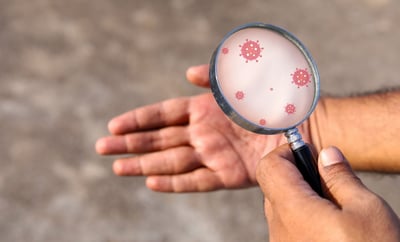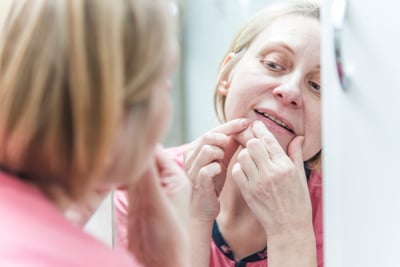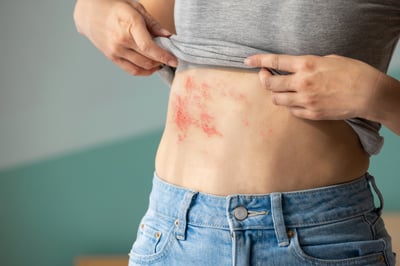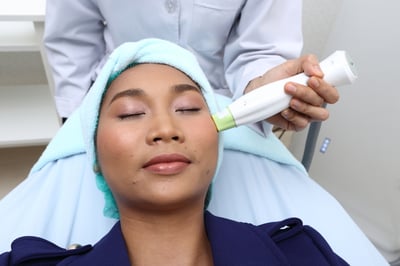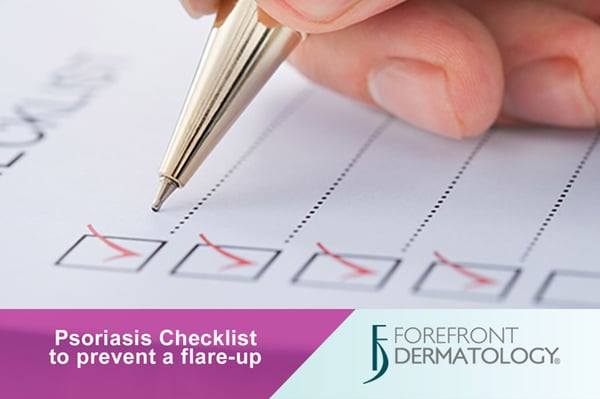
In honor of Psoriasis Awareness Month, we’re devoting August to raising awareness about psoriatic disease and its effects on the more than 7.5 million people living with this condition. This week, we are taking a look at ways you can prevent your psoriasis from flaring up by avoiding known triggers. If you have psoriasis, you may already be aware of some of the things that can cause you to have a flare-up. The tricky thing is that what causes a flare-up for one person may not affect another. There are several things that researchers have found to be common triggers for those suffering from psoriasis.
- Stress Stress can cause psoriasis to flare for the first time or aggravate existing psoriasis. Relaxation and stress reduction may help prevent stress from impacting psoriasis. This can be a tough one though because having psoriasis can also stress you out. Take a bath, light a candle or try meditating to beat stress in a healthy way. Exercise is an excellent stress reliever and can help control the other inflammatory effects of psoriasis, including high blood pressure and metabolic syndrome.
- Injury to the Skin Psoriasis can appear in areas of the skin that have been injured or traumatized. This is called the Koebner [KEB-ner] phenomenon. Friction and rubbing, sunburns and scratches can all trigger a Koebner response, and may be partially why psoriasis often affects the knees and elbows. The Koebner phenomenon can be treated if it is caught early enough. If you experience a small injury to your skin, treat it as quickly as possible by cleaning and bandaging it. For larger injuries, see your dermatologist as soon as possible following the injury.
- Medications Certain drugs, such as lithium (a common treatment for bipolar disorder), drugs for malaria, and some beta-blockers (used to treat high blood pressure, heart disease, and some heart arrhythmias), can cause flare-ups of psoriasis symptoms. If you note new areas of involvement, or a flare of your condition after starting a new medication, make sure to discuss this with your dermatologist.
- Alcohol Many people with psoriasis find that drinking alcohol, especially in large amounts, will cause their psoriasis to flare. Drinking alcohol dehydrates the body and the skin, exacerbating the dry flaky patches and often making itching more prominent. Also, certain psoriasis medications should not be combined with alcohol, so before starting any psoriasis treatment, it is important to discuss your drinking habits with your doctor. Drinking plenty of water and avoiding heavy drinking can help you avoid this problem. While psoriasis can cause stress, and alcohol can seem like an easy way to temporarily ease anxiety, it is far better for your overall health to find more healthful ways to relax.
- Cigarettes Patients with psoriasis have a higher risk of cardiovascular disease including atherosclerosis, which raises the chances of serious conditions including stroke and heart attack. Cigarette smoking speeds up this hardening of the arteries and is a bad idea for anyone, but especially those who have psoriasis. Within hours of quitting, increased blood supply to the skin, heart and other organs is found, and the damaging effects of smoking can reverse, the longer you stay nicotine free. There is quite a bit of anecdotal evidence that shows that quitting smoking improves symptoms in psoriasis patients and its well worth it for your overall health!
- Diet People with psoriasis often discover there are certain foods that seem to trigger flares. While there is no scientific evidence yet that any specific diet can eliminate or cure psoriasis, many people who suffer from this condition have reported a significant reduction in outbreaks by eating certain foods and avoiding others. As long as you continue to eat a healthy, balanced diet, experimenting with elimination of certain foods to see if it impacts your psoriasis is harmless. Certain people may find that reducing intake of dairy, fatty red meats, Foods that promote immune health, and which protect against heart disease and cancer, such as those containing omega-3 fatty acids (salmon, flaxseed) and those rich in antioxidants (colorful fresh fruits and vegetables) are the foods you want to include in your diet.
- Infections Anything that induces an inflammatory response can worsen psoriasis. In particular, strep throat often triggers the first onset of guttate psoriasis in kids and sometimes in adults. You may experience a flare-up following an earache, bronchitis, tonsillitis or a respiratory infection, too. Make sure you seek appropriate medical care for any infections with a fever promptly.
- Allergies Research has shown that people with psoriasis are more likely to have a large number of inflammatory mast cells–the kind that trigger allergic reactions like hives and itching, in their skin. When your seasonal allergies are flaring, you may notice a worsening of your psoriasis and itching. Controlling your hay fever symptoms with antihistamines can help to reduce the flare of itching and psoriasis that may come at the same time.
- Weather Cold and dry weather can cause dry skin, which makes the chances of having a flare-up worse. In contrast, warm, sunny weather appears to help control the symptoms of psoriasis in most people. Living in a humid climate is also better for psoriasis sufferers than living in a dry climate.
- Excess Sun While warm and sunny weather can improve the symptoms of psoriasis for many, getting a sunburn will almost always cause a flare-up. If you have psoriasis and enjoy spending time in the sun, remember to keep your exposure to a minimum and use sunscreen to avoid getting sunburn. An SPF30 broad-spectrum sunscreen reapplied every 2 hours is a good idea when outdoors. Also seek shade and avoid exposure during the peak hours of 10am-4pm.
Living with Psoriasis: How Can You Feel Better? If you or a family member is living with psoriasis, there are many things that you can do to feel better. Find the Forefront physician nearest you to learn about treatment options and lifestyle changes that can help prevent flare-ups and eliminate psoriatic disease symptoms in many cases.
